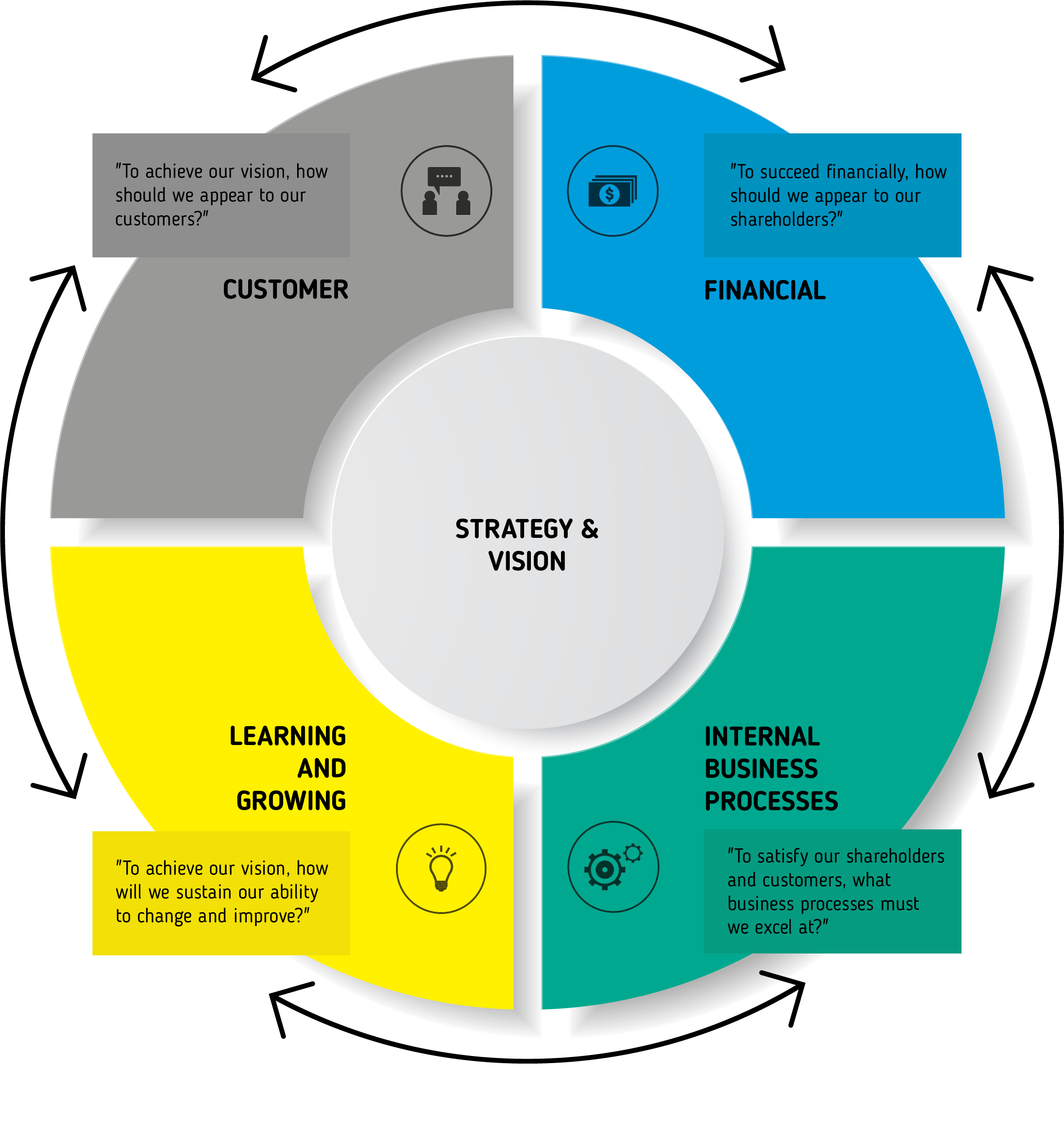You get what you measure, but how do you decide what to focus on? Traditionally managers and business owners have focused predominately on financial measures, however that isn’t all there is to running a business and often these are lag indicators of past performance. The alternative is to focus on operational measures such as defect rates and cycle times – but like the Ole El Paso kid says, “Why don’t we have both?”
Enter Kaplan and Norton from Harvard Business School, who devised a framework in 1992 to implement and manage strategy – the Balance Scorecard (BSC).
How does the Balance Scorecard work?
The Balance Scorecard helps managers to gauge business performance by linking performance measures. It not only looks at financial measures, but also utilises three additional measures representing internal and external focal points of a business – meaning it’s “Balanced”.
The 4 business perspectives (or measures) that the Balance Scorecard focuses on are:
- Customer Perspective (How do customers see us?)
- Financial Perspective (How do we look to shareholders?)
- Internal Business Perspective (What must we excel at?)
- Innovation and Learning Perspective (Can we continue to improve and create value?)
Similar to a scoreboard at a sporting match, the end result is an easy to understand scorecard that tells you where your strategy is being met, and areas that need attention.

Central to each perspective is the Vision and Strategy of the company. This means that each quadrant should assist in achieving that overall strategy. It is therefore prudent to ensure that you are clear on the strategy of your business prior to deciding on metrics to measure in each quadrant.
The BSC approach forces managers to limit the number of measures used, and therefore focus on the most critical factors of their business operations. It also ensures any decision-making takes into account consequences to other quadrants, while also reducing information overload.
How can the BSC help your business?
It’s not uncommon for small business owners to become bogged down in the day-to-day operations of their business. As such, they begin to lose sight of the end goal. In other words, they begin to lack direction and purpose.
Despite it being over 20 years since the Balance Scorecard was first devised, it remains a powerful tool to have in your business toolbox – whether you’re a new business owner or a seasoned owner/operator.
By adopting the BSC method, the end result is a set of tasks, that once achieved will ensure your overall business strategy is also achieved – helping you to feel in control once again.
In short, the Balance Scorecard becomes the marching orders for your organisation. It provides a simple set of metrics that will give clear focus and direction for your business.
Need some guidance?
To learn more about Lemonade Beach services, please use the links below.
- Business Advice & Planning
- Cash Flow Forecasting
- Accounting, Compliance and Tax for Businesses
- Personal Tax Returns





